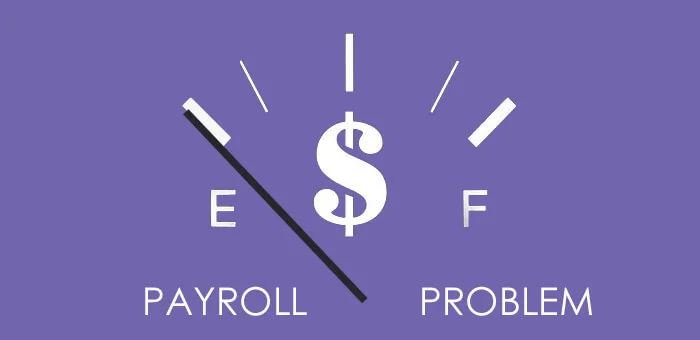7 alternative financing options for small businesses you haven’t tapped into yet
Payroll funding, AR financing, supply chain funding and more
There’s a world of alternative lenders out there for every small business challenge. Odds are, you haven’t heard of most of them.
If you had to list your top 5 challenges as an entrepreneur or small business owner, one of the top spots would likely be “managing cash flow” to keep your business and team running.
But in most situations, it’s hard to qualify for a traditional business line of credit.
Even after you’re finally approved, you likely didn’t qualify for a big enough line to really meet your needs. Especially as you grow.
This is when alternative lenders can become your saving grace.
There are dozens of alternative business funding, and unconventional business loans. They provide financing for practically every small business cash flow challenge — from supply chain financing, to reverse invoice factoring to payroll funding to accounts receivable financing.
In this article, we’ll give you the scoop on into the world of alternative lending and explore how to unlock the hidden assets and secure the funding that you need.
- When to look for alternative business financing options
- 7 types of alternative financing working capital solutions for small businesses
- Accounts Receivable (AR) Financing
- Invoice Factoring
- Payroll Financing
- Supply Chain Factoring
- Mobilization
- Bridge Loans
- Corporate financing.
When to look for alternatives to lines of credit? Two main reasons:
Reason 1: I’ve gone to my banker and I’m not eligible for a (big enough) business line of credit.
There could be various reasons why this is the case.
Banks have strict lending criteria and risk assessment processes.
Factors like credit score, collateral, and business performance play a huge role in their decision-making, and as a small, growing business, you’re hampered by the lack of historic data banks need to be able to give you a credit line.
See what you can prepare to better qualify in the future →
Reason 2: I can’t wait months for a business credit line
Many of our clients — specifically in construction and healthcare — have a very long billing cycle. Services are provided and materials bought months in advance of payment.
Unfortunately, for you, your small business can’t wait that long. Operations need to continue. Employees need to be paid. Materials need to be bought.
Alternative lenders often provide
- quicker approval turnaround times — so you know within a week or two if you qualify or if you need to turn elsewhere
- faster access to funds — days or weeks instead of months
- simpler approval qualifications — they have a better understanding of small business challenges and poor cash flow, a more accurate assessment of your growth and potential, and are quicker to approve you for funding
What many CPAs and business owners do not know – Alternative lenders.
Even your accountant often doesn’t know about most of the vast array of alternative lending options for small businesses.
How does a non-traditional financing option work? Alternative lenders find a specific asset in your business that’s worth money (e.g. money you’re owed by clients) and advance you cash on that asset.
In other words, they find a hidden asset – something valuable your business owns that you didn’t even know you have, and use that as a way to fund your operations without risk.
Hidden assets could be the value of your product or services, the value of unpaid invoices, the value of contracts in place and much, much more.
Let’s quickly explore 7 of these alternative financing options for small businesses based on your assets:
Here’s a quick chart showing you alternative loan types, and whether it would work for your business.
- Check to see which hidden assets your business might have (column 1)
- Then look at the alternative financing options for small businesses available to you. (column 2)
Your hidden asset
Accounts receivables
(money that you’re owed by clients, insurance, or government)
Accounts receivables
Credit worthy clients (not you)
(eg Walmart is your customer)
W2 employees on payroll
Positive cash flow history
Supply chain inventory
Reputable contracts
In construction industry
Material & workforce need for an upcoming project
Commercial real estate
Cap-ex & more
Alternative financing available for you
Accounts Receivable (AR) Financing:
You’re essentially using your accounts receivable (outstanding invoices) as a collateral to the financing company at a small discount. They advance you money on the invoice, and their rate is typically 1%-to-3% of the invoice amount. AR financing lets you access immediate funds for operational needs without waiting for the client to pay.
Invoice Factoring:
Similar to AR financing, invoice factoring involves selling your accounts receivable at a discount to a lender. This option gives you immediate cash flow while the responsibility of collecting payments is now on the shoulders of your loan provider.
Payroll Financing:
You get a short-term loan or an advance to fund your payroll. The benefit of this option is how easy it is. Approval is fast, funding is fast — you can apply and 2 days later, funds are in your account. This lets you fund your team while waiting for payments to come in, or checks to clear.
Supply Chain financing:
Receive funds for your supplier or goods, up front - both domestic and international finished goods. This allows you to unlock cash upfront, ensuring a consistent and smooth flow of working capital.
Mobilization:
Fund the workforce or buy materials for an upcoming project. In industries such as construction, mobilization financing is crucial to cover upfront costs before a project begins.
Bridge Loans:
Helps to bridge the gap between your current financial situation and a future funding source. It’s like an “in-between” loan to tide you over until your real loan comes through. Mainly used by commercial real estate – for non-income producing buildings (since banks won’t finance those).
Overall, Corporate Financing:
Financing, such as advances, to pay for the capital structure of the company (capital structuring, accounting, investment decisions, etc.). Corporate financing covers all types of financing that increases the value of your company to maximize the shareholder value.
How do you find those hidden assets?
As the business owner, it can be tough for you to find hidden assets. It’s often worth turning to a “quasi underwriter” — a loan broker or loan expert. They can dig up those assets that make you eligible for specific alternative lending options… that fit your business like a glove.
They know all the non-traditional business loans and financing options out there, and can offer your business unique financing solutions built around a specific small business financing need.
Get the full scoop on various financing options in Alternative Financing Part 2 here (coming soon).
Need a quick loan to cover payroll while you explore alternative loans? Apply here in less than 5 minutes, and have it as a free safety net for your business (since there’s no cost until funds are used). See more about how it works here.
Morris Reichman
hello@payrofinance.comMorris Reichman is the founder and CEO of Payro Finance. Former Vice President at Infinity Capital Funding an alternative finance company, Morris possesses a versatile background in the finance industry. Having spent 7+ years working across global macro operations and start up corporate finance Morris's expertise is in business accounting, risk management and investment analysis. Morris founded Payro Finance to support business owners and ensure their business continuity.
Need a short-term loan to cover payroll?
Apply in under two minutes, and get approved within 2 days. Once approved, funds are in your account the same day.
- Always 1.5% weekly
- Up to $500,000
- Same-day funding


